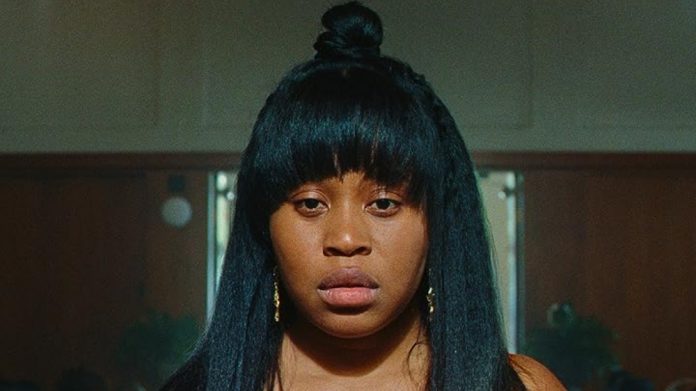Long before Amazon released all seven episodes of its psychological thriller Swarm on Prime Video this past March, there were false narratives circulating on social media regarding what the show was really about.
Wasn’t it just a social critique of the toxic “stan” culture surrounding a Beyoncé-like singer?
Well, no. Not exactly… though you didn’t hear Janine Nabers protest. Nabers co-created Swarm with Donald Glover and rather than attempt to clear things up beforehand, the two of them allowed the shocking series to set the record straight itself, allowing viewers to actually be surprised, for a change.
The blood-soaked series is led by Dominique Fishback, who earned an Emmy nomination for her performance, and she’s joined by Chloe Bailey, Damson Idris, Paris Jackson, Rory Culkin, and singer Billie Eilish.
Nabers earned an Emmy nomination herself as one of the writers of Swarm, though she was interviewed as a showrunner/creator due to the ongoing WGA strike, on which she also weighed in with a thoughtful response. Nabers also told Above the Line about the genesis of Swarm and her goals in using original storytelling to dismantle certain Black tropes.
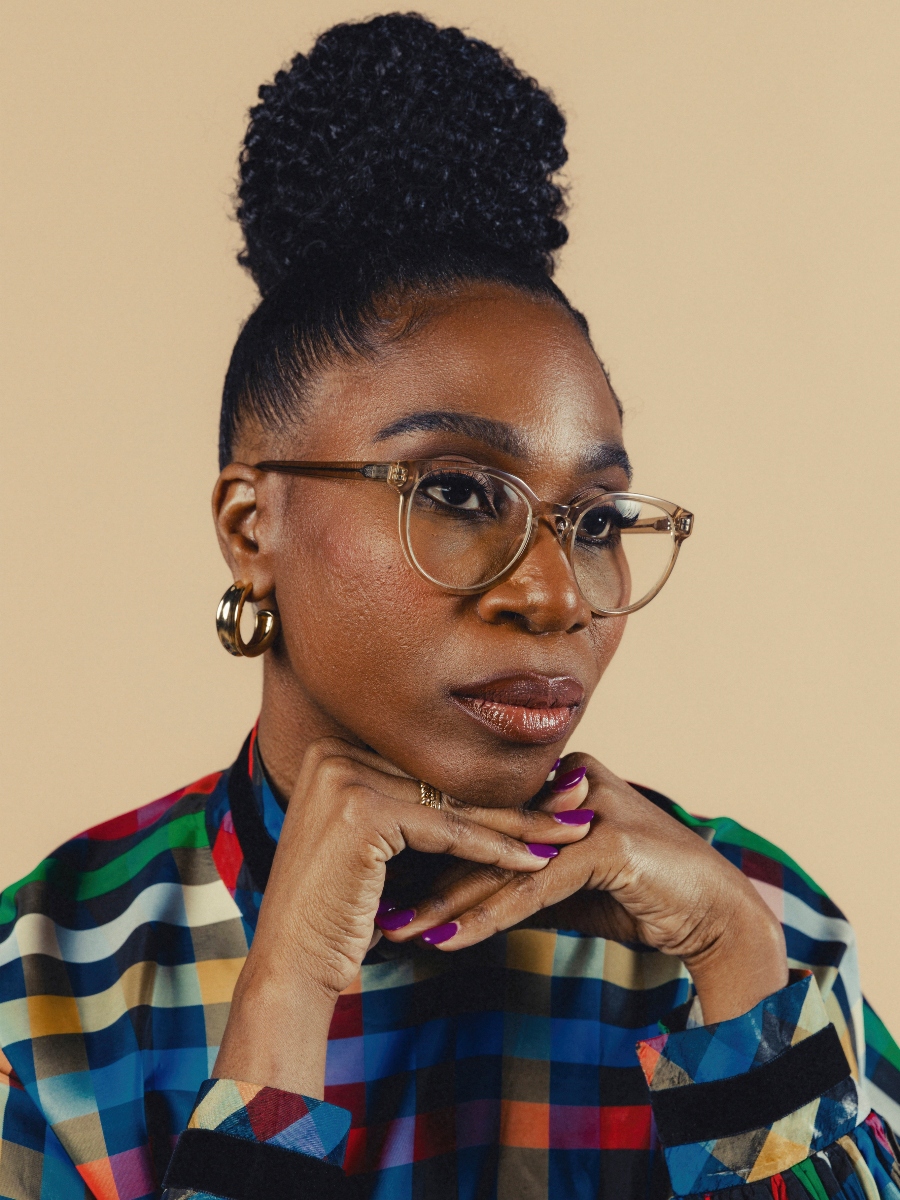
Above the Line: I understand that Donald Glover pitched you on the show and the two of you discussed a tweet about how Black women are supposed to be lawyers or teachers, but not necessarily serial killers. Where did the pitch go from there?
Janine Nabers: We really meditated on it for a while. I think that the idea had always been a show about a super fan, but allowing her to also be this serial killer, right? And then the pilot kind of being the origin story of that. So we were always kind of telling these two stories in parallel with each other, and so we worked on the pitch for several months before we went to Amazon with it. And from there, we assembled the [writers] room.
ATL: Talk about how people on social media assumed what Swarm was going to be about before it was even released and created a certain narrative about someone obsessed with a Beyoncé-like performer versus what the storyline actually turned out to be.
Nabers: I think it’s interesting because if you look at any of the seasons of Atlanta, even before they come out, it’s all pretty kind of secretive. You don’t really know what you’re going to get. I think because we were working with an idea that was so experimental in the way that we were telling it, just kind of based on true events, like, taking real-life murders and real events in pop culture that surrounded a particular pop star — because all of those things were touchstones to the story.
So, when it was leaked as a story about a Beyoncé-like figure, that’s what people got. That’s literally the logline that they got. And that’s what they had for a very, very long time. We just really wanted to stay committed to the story of, yes, we’re telling the story about a Black woman who is obsessed with a particular pop star, but let’s also dissect who she is and where she comes from and her origin story and what actually propels the story forward, which are these murders.
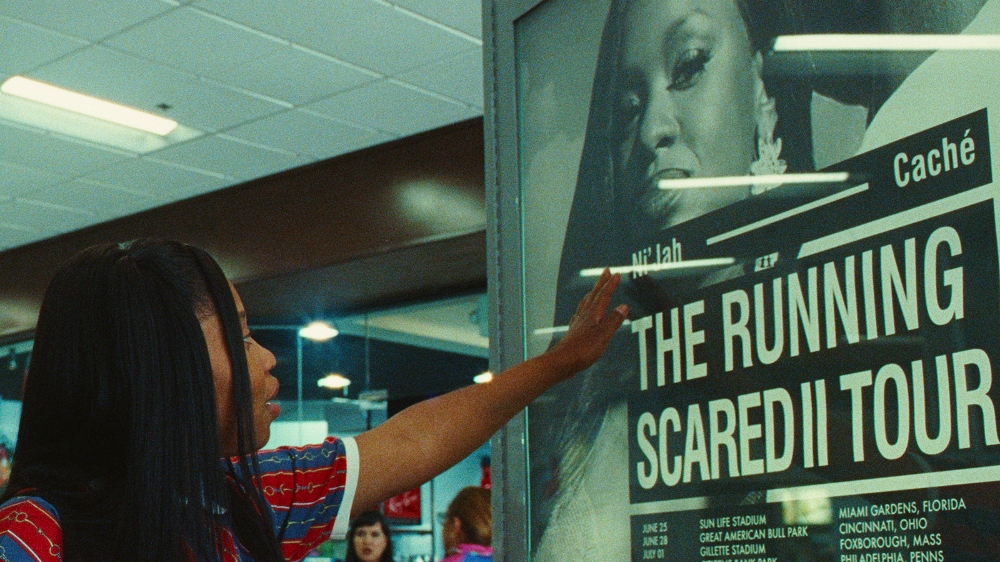
ATL: I bet you guys are really taking in all of these recent incidents where fans are throwing stuff at their favorite performers while they’re on stage.
Nabers: Oh, yeah. It’s wild. It’s so crazy. I don’t really get the logic of it, but I have been seeing it.
ATL: Yeah, it’s disturbing. But let’s get back to you and Donald. You worked together on the last season of Atlanta, but how did you and he become collaborators on this project?
Nabers: I came on to Seasons 3 and 4 of Atlanta, and I think those two seasons were really successful, [both] as a room and just together as two writers who were getting to know each other. And so when Season 4 was wrapping up, that’s when we started talking about creating the show together, which was really exciting. We always saw it as a sister to Atlanta in the sense that you look at Paper Boi and Earn and they have this, like, family connection, and you get an idea of what the foundation of that story is, and then you can kind of go on all these really cool tangents with them. I think the sister part [of] Swarm is that you see Dre and Marissa [Chloe Bailey], who have this family bond and this kind of episodic journey that we go on with Dre over the course of two and a half years.
ATL: The character of Dre is deeply complex, multilayered, and let’s just say, unhinged. You must be very proud of Dominique’s Emmy nomination, which stands as a testament to your writing as well.
Nabers: Dominique is just really a pro. And she knew from the get-go that every single episode is gonna basically have an entirely different cast and that you form these really intense bonds with these characters. And she really just trusted us. It really was just, like, we hit the ground running, and she was so professional and just so communicative of what she needed. And I think that was half the battle.
People would come and read their own episodes and not know anything about what the show is. And she would come in, and even if her character was this person who was very intense, she would make everyone around her feel very settled and warm. She really carried the weight of being #1 on the call sheet with the rotation of actors that we had coming in and out of our show. She’s a star and she deserves this nomination more than anything.
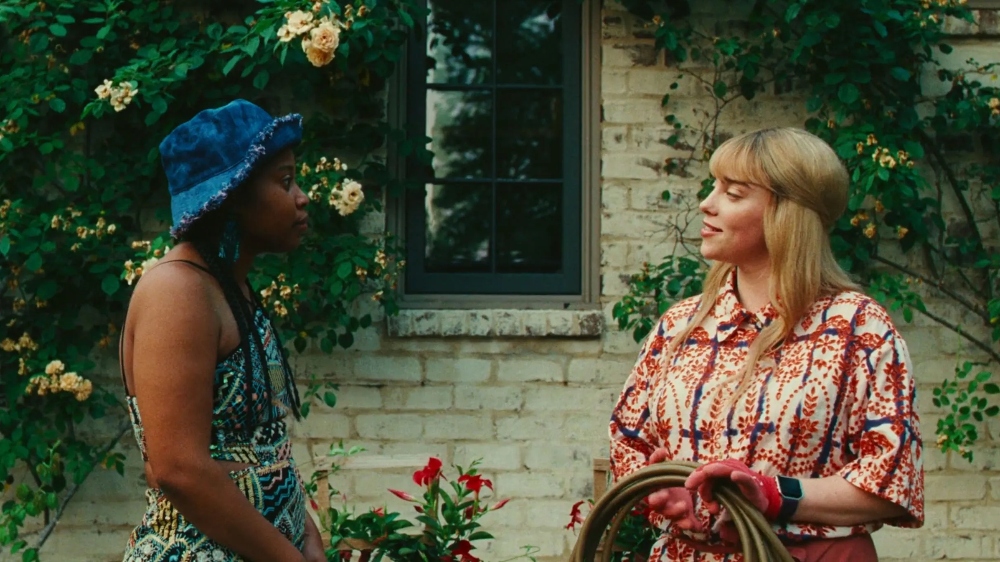
ATL: Speaking of the actors, it was Billie Eilish’s first acting job, so what can you tell me about working with her?
Nabers: Billie came to set and she was just really professional. Her mom is an acting coach and a wonderful actress in her own right, and her mother was there on set with her. It just felt very seamless. She came to the plate just wanting to give it her all because this was very much her first acting thing — and she killed it. Literally every single scene is with women. There are no men at all in that episode. And so this idea of the lens being the female gaze itself, I think, is really interesting. You’re in the perspective of a woman’s psychology and the breakdown of that and the manipulation of that. I think Billie just really did a wonderful job with that role.
ATL: Agreed. Let’s shift gears a little bit and talk about the diversity within Black stories and what your goals were with Swarm.
Nabers: One of the [important] things for me as a storyteller is just allowing Black women to not be placed in a box of, for lack of a better word, “Blackness.” We’re not a monolith. Black people are so many different things. With Swarm, we really wanted to create a character that just felt so unique — someone that we could see part of ourselves in, but also be kind of scared of a little bit. Someone that you just never know what you’re gonna get from her.
That was really exciting to take all of the ideas and all of the tropes that we have as Black people in TV and in the history of cinema [and] break that open and create someone that felt like a whole new type of [character]. I really kind of set out to do that with all of my characters. I really just want to create very unique perspectives and [offer] a fresh take on how a Black woman would react to something.
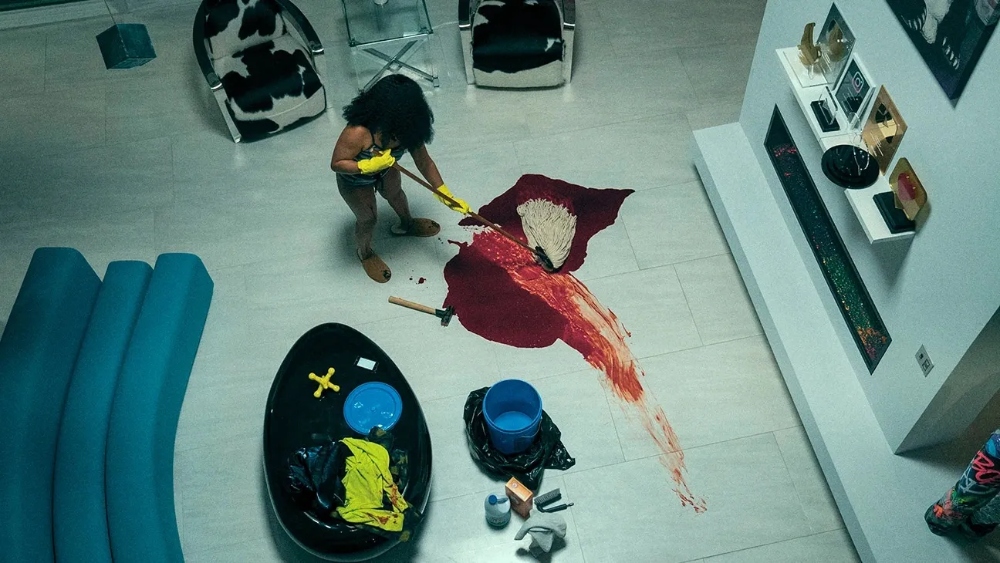
ATL: You have been very busy in the past few years working on shows ranging from UnREAL, which I loved, by the way, to Dietland, Girlfriends’ Guide to Divorce, and Watchmen. How did your experience on Swarm compare to those?
Nabers: All of those shows are just so groundbreaking and exciting. Unreal was unlike any show that had been on TV before because we were taking this beloved kind of institution of The Bachelor and kind of breaking it open in this really interesting way. With Watchmen, you’re taking this beloved comic and you’re turning it on its head. Both of those shows are very polarizing and I feel like that’s just kind of how I came into TV — as a storyteller. I feel like my plays have a polarizing spin to them as well, and I’m just really excited by telling a story that can make some people lean in and feel so emotionally taken by the story.
And then some people just think, like, “What am I watching?” That, to me, is what makes TV so thrilling. And that’s one of the things I love so much about having worked with Marti Noxon, who I think is one of the bravest people out there in terms of storytelling, and Damon Lindelof, who just has made an entire career out of just writing the most insane scenarios and making them prestige TV, basically.
ATL: I completely agree with you. And I must ask, with the WGA and SAG-AFTRA strikes still going on, and seeing all the consolidation, strategy shifts, and layoffs at these media companies, what concerns you most right now as a creative person in the industry?
Nabers: I think a lot of executives get really bad raps, and I’m talking about development executives. There are a lot of people who work in these really big institutions who are so monumental to, like, my career and other writers’ careers. And unfortunately, because there are these huge machines behind them, they get swallowed up. You can start working on a show with two people who totally understand your way of thinking and totally understand what you’re trying to do on the page, and then you go away for a weekend and you come back, and then those people are just gone. They’ve just been fired or let go. And then you have two, sometimes four people, and you’re like, “I don’t know these people. They’re coming in with an agenda.”
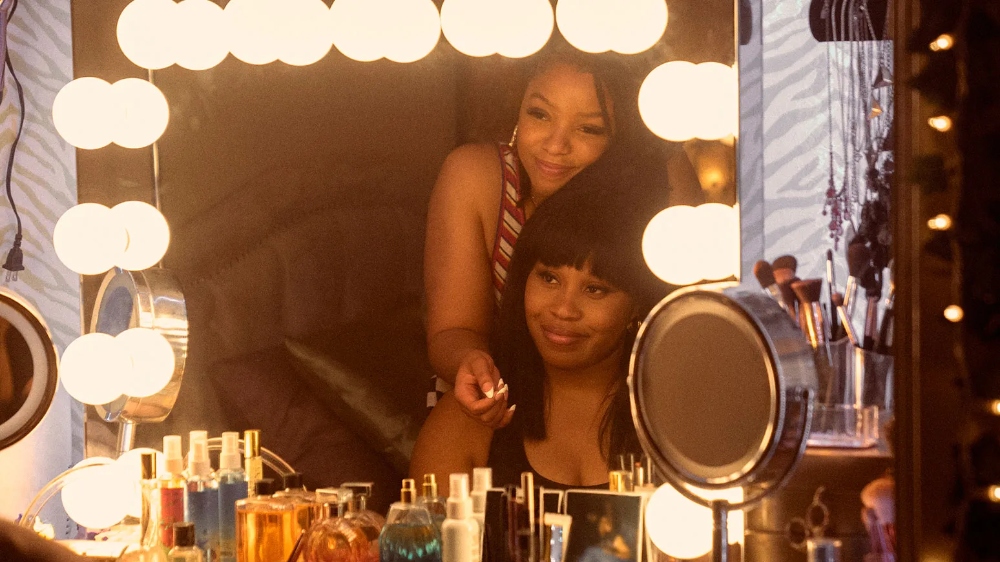
It’s really confusing. And so I think creativity can be stifled very easily because of that. So I know what’s happening right now is necessary and there are so many things at stake. I just hope that, at the end of the day, the people who are in this business [and] nurturing writers within development are people who actually care about the stories being told and not the machine behind them that is dictating how much money they should be making or whatever. That, I think, is still a really valuable relationship when it comes to the TV shows that are being made. You want to feel safe and you want to feel heard and you want to feel like people believe in your vision, and that, I think, is half the battle today.
ATL: What are your hopes for the outcome of the strikes, though?
Nabers: I just hope that we can all walk away with our dignity and that our writers get what they’re asking for. We’re not asking for a lot. I hope that we resolve this very soon and I really hope that a lot of people don’t fall out of this business because the strike has taken so long. I really just hope that we can keep careers intact and move forward together.
Swarm is now streaming on Prime Video.


